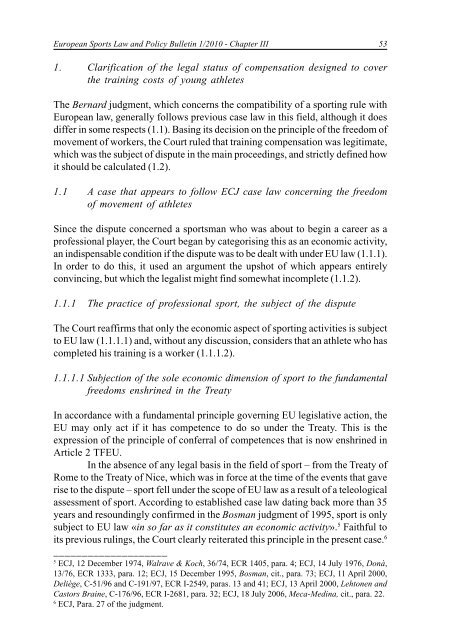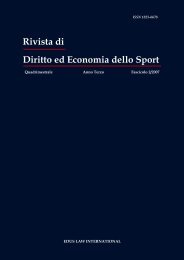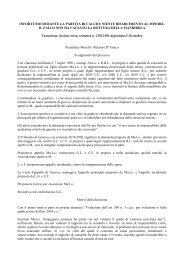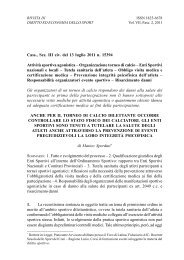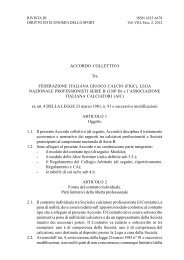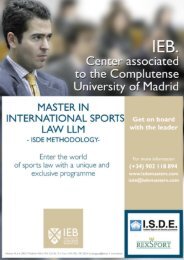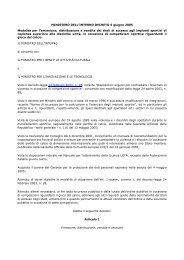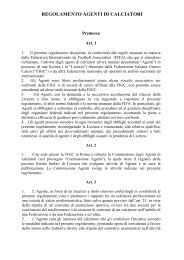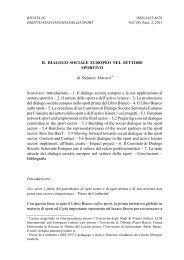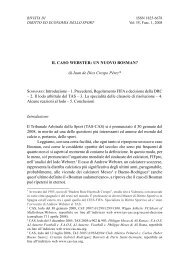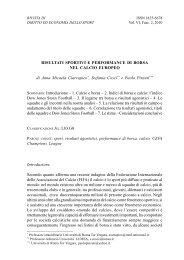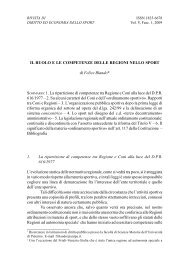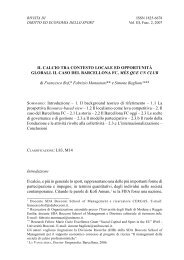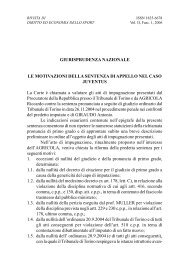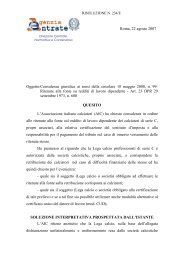European Sports Law and Policy Bulletin THE BERNARD ... - Slpc.eu
European Sports Law and Policy Bulletin THE BERNARD ... - Slpc.eu
European Sports Law and Policy Bulletin THE BERNARD ... - Slpc.eu
You also want an ePaper? Increase the reach of your titles
YUMPU automatically turns print PDFs into web optimized ePapers that Google loves.
<strong>European</strong> <strong>Sports</strong> <strong>Law</strong> <strong>and</strong> <strong>Policy</strong> <strong>Bulletin</strong> 1/2010 - Chapter III 531. Clarification of the legal status of compensation designed to coverthe training costs of young athletesThe Bernard judgment, which concerns the compatibility of a sporting rule with<strong>European</strong> law, generally follows previous case law in this field, although it doesdiffer in some respects (1.1). Basing its decision on the principle of the freedom ofmovement of workers, the Court ruled that training compensation was legitimate,which was the subject of dispute in the main proceedings, <strong>and</strong> strictly defined howit should be calculated (1.2).1.1 A case that appears to follow ECJ case law concerning the freedomof movement of athletesSince the dispute concerned a sportsman who was about to begin a career as aprofessional player, the Court began by categorising this as an economic activity,an indispensable condition if the dispute was to be dealt with under EU law (1.1.1).In order to do this, it used an argument the upshot of which appears entirelyconvincing, but which the legalist might find somewhat incomplete (1.1.2).1.1.1 The practice of professional sport, the subject of the disputeThe Court reaffirms that only the economic aspect of sporting activities is subjectto EU law (1.1.1.1) <strong>and</strong>, without any discussion, considers that an athlete who hascompleted his training is a worker (1.1.1.2).1.1.1.1 Subjection of the sole economic dimension of sport to the fundamentalfreedoms enshrined in the TreatyIn accordance with a fundamental principle governing EU legislative action, theEU may only act if it has competence to do so under the Treaty. This is theexpression of the principle of conferral of competences that is now enshrined inArticle 2 TFEU.In the absence of any legal basis in the field of sport – from the Treaty ofRome to the Treaty of Nice, which was in force at the time of the events that gaverise to the dispute – sport fell under the scope of EU law as a result of a teleologicalassessment of sport. According to established case law dating back more than 35years <strong>and</strong> resoundingly confirmed in the Bosman judgment of 1995, sport is onlysubject to EU law «in so far as it constitutes an economic activity». 5 Faithful toits previous rulings, the Court clearly reiterated this principle in the present case. 6____________________5ECJ, 12 December 1974, Walrave & Koch, 36/74, ECR 1405, para. 4; ECJ, 14 July 1976, Donà,13/76, ECR 1333, para. 12; ECJ, 15 December 1995, Bosman, cit., para. 73; ECJ, 11 April 2000,Deliège, C-51/96 <strong>and</strong> C-191/97, ECR I-2549, paras. 13 <strong>and</strong> 41; ECJ, 13 April 2000, Lehtonen <strong>and</strong>Castors Braine, C-176/96, ECR I-2681, para. 32; ECJ, 18 July 2006, Meca-Medina, cit., para. 22.6ECJ, Para. 27 of the judgment.


